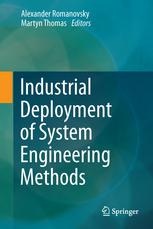

Most ebook files are in PDF format, so you can easily read them using various software such as Foxit Reader or directly on the Google Chrome browser.
Some ebook files are released by publishers in other formats such as .awz, .mobi, .epub, .fb2, etc. You may need to install specific software to read these formats on mobile/PC, such as Calibre.
Please read the tutorial at this link: https://ebookbell.com/faq
We offer FREE conversion to the popular formats you request; however, this may take some time. Therefore, right after payment, please email us, and we will try to provide the service as quickly as possible.
For some exceptional file formats or broken links (if any), please refrain from opening any disputes. Instead, email us first, and we will try to assist within a maximum of 6 hours.
EbookBell Team

0.0
0 reviewsA formal method is not the main engine of a development process, its contribution is to improve system dependability by motivating formalisation where useful. This book summarizes the results of the DEPLOY research project on engineering methods for dependable systems through the industrial deployment of formal methods in software development. The applications considered were in automotive, aerospace, railway, and enterprise information systems, and microprocessor design.
The project introduced a formal method, Event-B, into several industrial organisations and built on the lessons learned to provide an ecosystem of better tools, documentation and support to help others to select and introduce rigorous systems engineering methods. The contributing authors report on these projects and the lessons learned. For the academic and research partners and the tool vendors, the project identified improvements required in the methods and supporting tools, while the industrial partners learned about the value of formal methods in general. A particular feature of the book is the frank assessment of the managerial and organisational challenges, the weaknesses in some current methods and supporting tools, and the ways in which they can be successfully overcome.
The book will be of value to academic researchers, systems and software engineers developing critical systems, industrial managers, policymakers, and regulators.